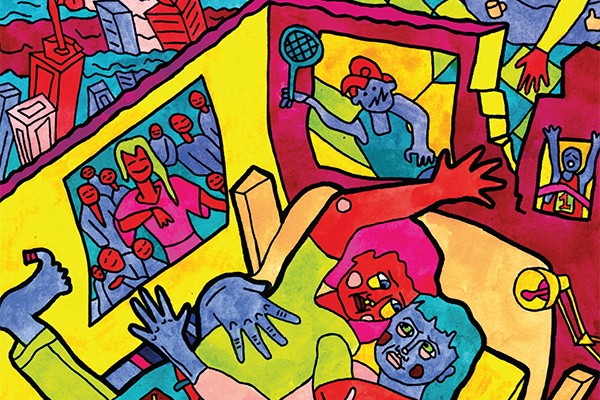When does a life bend toward freedom? grasp its direction?
How do you know you’re not circling in pale dreams, nostalgia, stagnation
So asked Adrienne Rich, documenter of exiles, revolutionaries and the twentieth century. Too often, our response to uncertainty and impending apocalypse is that we must save this world – a world of yearning for counterfeit yesterdays and rehabilitated tomorrows. Or worse, for things to continue as they are, as we have come to believe they have always been; a world we are told is ‘already great’, ad nauseam.
But in a world where we no longer have to list the horrors because their shadows are constant – is this really a present we should save? This is the question the writers in Overland’s first edition of 2017 ask. All worlds end, we are reminded here. Indeed many have ended before this one, and theorists both conservative and radical have long recognised that ‘commercial society’ was a system with limits and contradictions, and, therefore, an expiration date.
But whether it’s in the Philippines or in Australia, the attempt to stifle and silence populations, literally and deliberately, is current. The histories documented between these covers – in fiction, poetry and essay – can tell us a great deal about how we reached these present-day barbarities, but it can’t, unfortunately, tell us what the future will look like if we dare to conceive of the end of capitalism.
The onus is on us to be bold, coherent and hopeful as we realise the present was only ever a pale dream of one of many possible futures.
I wear my triple eye as I walk along the road
past, present, future all are at my side
Read the rest of Overland 226
If you enjoyed this piece, buy the issue




